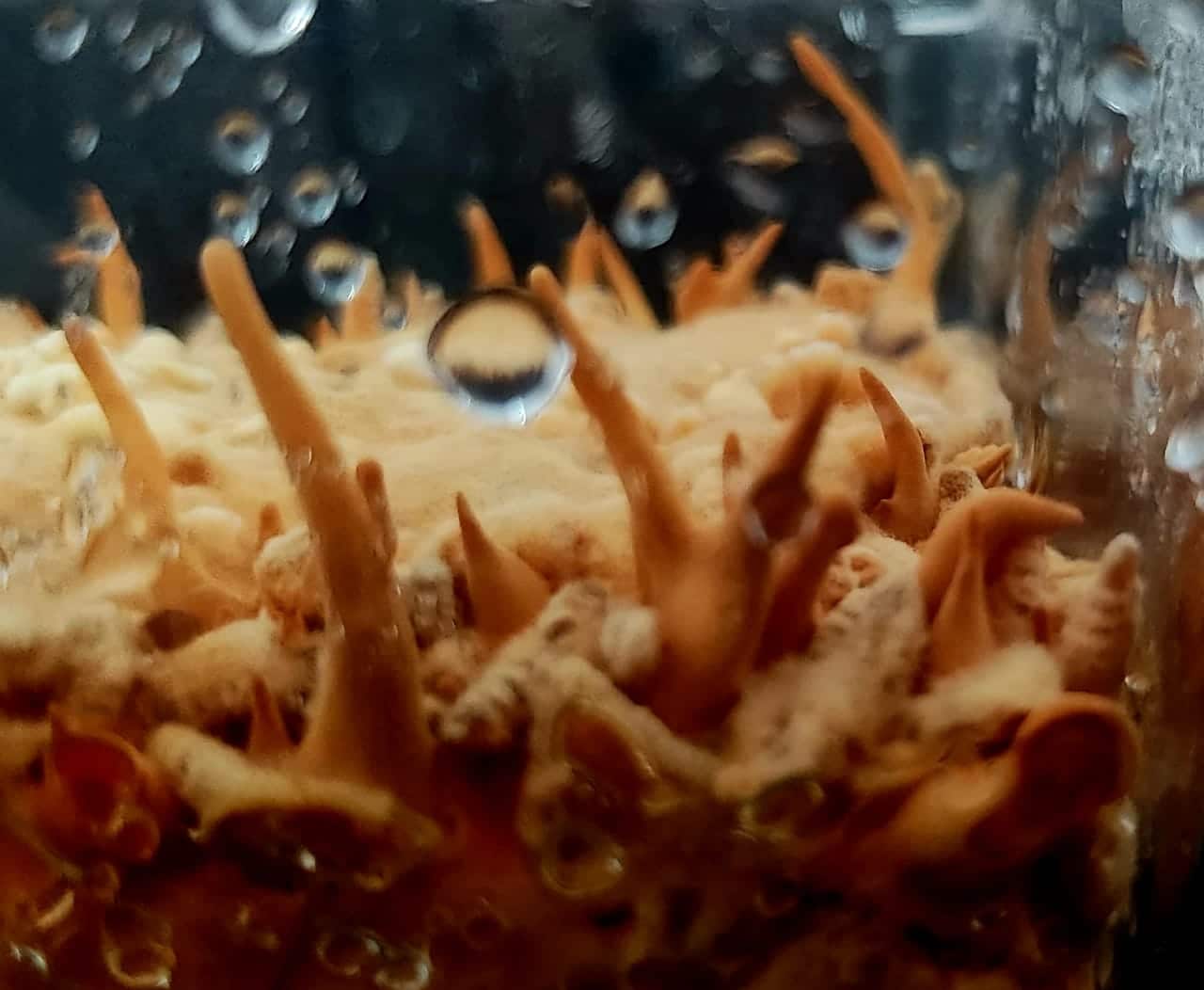Himalayan School of Biosciences Establishes Protocol for Culturing Medicinal Fungus Cordyceps militaris
The Himalayan School of Biosciences at Swami Rama Himalayan University, Jollygrant, Dehradun, has achieved a milestone in the field of medicinal mushroom research. The institution has successfully established a protocol for culturing Cordyceps militaris, a valuable medicinal fungus renowned for its numerous health benefits, including anti-aging and anti-tumor properties. This achievement is a testament to the school’s commitment to advancing bioscience research and education. The protocol emerged after four rounds of intensive trials.
Cordyceps militaris (A species among 750 species of Keeda jadi identified in the world), a species
f fungus within the family Cordycipitaceae, is known for its bioactive compounds such as cordycepin and adenosine, which exhibit anti-inflammatory, anti-cancer, and immunomodulatory properties. The research team at the Himalayan School of Biosciences, led by Dr. Vikash Singh Jadon, Dr. Geeta Bhandari, Dr. Nupur Joshi, Dr. Archna Dhasmana, and Prof. Sanjay Gupta, has developed a robust and reproducible protocol for the in vitro culture of this fungus. This protocol ensures consistent and high-quality fungal growth, making it scalable for larger research projects and potential commercial ventures.
The successful culturing of Cordyceps militaris opens up new possibilities for studying its pharmacological properties and developing new therapeutic agents for various biomedical applications, including cancer and neurocognitive disorders. The team's ongoing pre-clinical trials focus on the active components of Cordyceps militaris, with trials being conducted on cell cultures and animals. This novel research highlights the potential for industrial-level replication, which could significantly benefit humanity in treating cancer and neural conditions.
Cordyceps militaris is one of approximately 750 identified species of Cordyceps, found primarily in South Asia, Europe, and North America. The species' unique medicinal properties have made it a focal point for bioscientific research globally. The establishment of an effective culturing protocol by the Himalayan School of Biosciences positions the institution as a leader in medicinal mycology and underscores SRHU's commitment to innovation and new ideas.
In addition to Cordyceps militaris, the research team at the Himalayan School of Biosciences is exploring other medicinal mushrooms, including Morchella (true morels) and Lion’s Mane. These mushrooms are known for their potential therapeutic benefits, and the team aims to uncover their bioactive compounds and medicinal properties.
With state-of-the-art facilities and 12 high-tech labs, the Himalayan School of Biosciences continues to lead in scientific discovery and innovation. This recent achievement marks a significant advancement in their research capabilities and reinforces their role as a premier institution in the field of biosciences.
The establishment of a protocol for culturing Cordyceps militaris by the Himalayan School of Biosciences is a major milestone in medicinal mushroom research. This success story reflects the institution's dedication to advancing scientific knowledge and its potential to contribute significantly to global health through innovative research.



